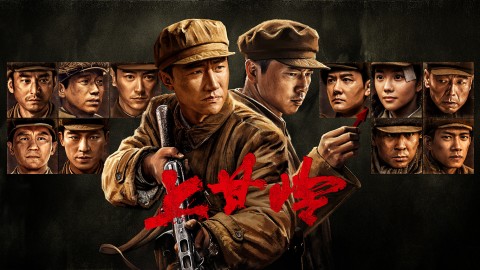The Struggles of a Long-Distance Marriage: A Synopsis of 'Welcome to Milele Village'
In the TV drama "Welcome to Milele Village," Liu Xiao Xian, played by Zhao Zi Qi, faces the challenges of a long-distance marriage, particularly due to Ma Jia's work in Africa, which gradually leads to their relationship becoming cold. Exhausted from the dual pressures of life and work, Liu Xiao Xian starts contemplating the need for a different lifestyle, and Ma Jia's lack of understanding regarding her father's surgery becomes the catalyst for divorce.
Ma Jia's busy work in Africa leaves him with little time to attend to his family. Liu Xiao Xian often complains about the emotional detachment during their conversations, while Ma Jia, driven by his career pursuits, gradually neglects the emotional needs within their marriage. His focus on work in Africa makes it difficult for him to comprehend the pressure and loneliness Liu Xiao Xian experiences back home.
The challenges of a long-distance marriage accumulate between the couple, becoming increasingly difficult to reconcile. During a critical moment when Ma Jia's father falls ill and needs surgery, Liu Xiao Xian finds it hard to let go of her anxiety. Ma Jia, occupied with work in Africa, is unable to stay updated on the situation at home, but his overly critical attitude towards Liu Xiao Xian's delay in informing him exacerbates the situation.
Liu Xiao Xian believes she has made continuous efforts for the marriage, but Ma Jia's lack of understanding and criticism render communication impossible, laying the foundation for her decision to divorce. The breakdown of their marriage for Liu Xiao Xian begins with emotional detachment and communication difficulties. She feels that Ma Jia doesn't understand her and lacks empathy for the pressures of work and life.
As their marriage reaches the brink of collapse, Liu Xiao Xian yearns to break free from the stifling state and seeks a lifestyle where she can be truly understood and cared for. In summary, in the TV drama "Welcome to Milele Village," Liu Xiao Xian and Ma Jia's marriage takes a path towards separation.
The coldness of long-distance, the pressures of life, the difficulties of communication, and the contradiction of Ma Jia's father's surgery collectively form the psychological basis for Liu Xiao Xian's decision to divorce. She hopes to escape the pressure and find a way of life that aligns better with her expectations, embracing an unknown future. Liu Xiao Xian's dissatisfaction and emotional burden towards the marriage dissolve beneath the decision to divorce.
She feels a sense of liberation, a newfound ease free from troubles. Perhaps, this is what she has always sought but couldn't attain within the marriage—a state of freedom and ease. Divorce is not a failure for her but a fresh start to reclaim her freedom. Ma Jia feels helpless about the development of their marriage. Perhaps, his busyness in Africa did lead to negligence of Liu Xiao Xian's needs, but his understanding of marriage also needs deepening.
Liu Xiao Xian's divorce catches him by surprise and leaves him disheartened, but perhaps it is a necessary awakening that makes him seriously reflect on his responsibilities and commitments within the marriage. Divorce may be an ending, but it can also be a new beginning. Liu Xiao Xian can embrace the future with a broader mindset, explore various possibilities, and rediscover a way of life that belongs to her.
Her pursuit of happiness and liberation from pressure is a proactive effort, leaving behind a new realm for herself. Although Liu Xiao Xian's story is fictional, it reflects the conflicts and struggles many people experience in real-life marriages. Marriage is a relationship that requires careful nurturing, and communication and understanding between spouses are the cornerstones of a happy marriage.
While Liu Xiao Xian's decision to divorce may be a personal choice, for the audience, it serves as an opportunity for profound reflection, reminding us to cherish the love and relationships around us and to invest wholeheartedly in our own happiness.


